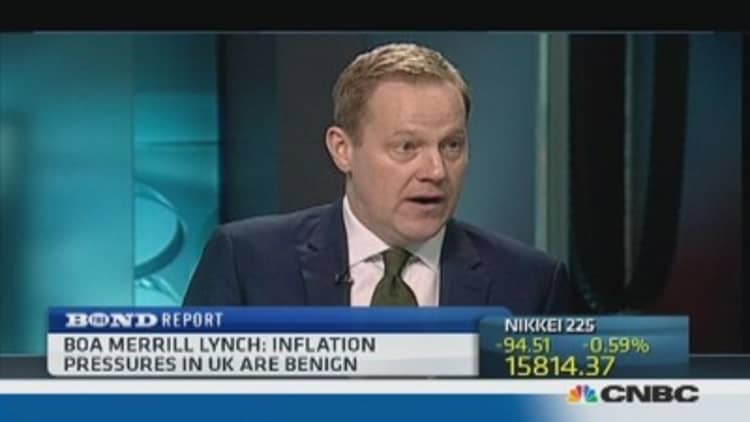With speculation growing that the Bank of England will have to change its forward guidance rules just months after they were brought in, some economists are starting to argue that the policy should be abandoned entirely.
The policy, which involves explicitly signaling that interest rates set by the central bank will remain at their historic low of 0.5 percent until unemployment reaches 7 percent, was a central tenet of new Governor of the Bank of England Mark Carney's changes when he arrived at the bank last summer. Now, it may be revised to include an unemployment target of 6.5 percent, after unemployment fell more quickly than anticipated, according to a report in the Sunday Times.
(Read more: UK unemployment falls, putting rate hike in focus)
"That would make a mockery of a policy meant to provide clarity about interest rates. If the threshold can be lowered once, it can be lowered again, or raised for that matter," Rob Wood, chief U.K. economist at Berenberg, argued.
"When the threshold is reached, guidance should be allowed to die a quiet death."

The aim of forward guidance was to give fewer surprises to the market – and therefore make the U.K. less vulnerable to shocks – and Carney was always eager to point out that the 7 percent threshold was not an absolute line in the sand, but a "way-station." Another goal of the policy was to turn the BoE's focus from inflation, which hit a four year low of 2.1 percent in November, to unemployment. It has had a target of 2 percent inflation since 2003.
Carney's plans have been sent astray by a series of unexpectedly positive statistics on the U.K. economy, with measures such as unemployment and house prices performing better than forecast.
There is "growing confidence in the depth and breadth of the recovery," as Citi analysts have pointed out, with business confidence booming.
(Read more: Business optimism boosts hopes of solid UK growth)
The Bank's Monetary Policy Committee is expected to keep rates on hold when they meet on Thursday.
At the moment, the majority of economists expect rates to stay right where they are until at least the end of 2014, with most predicting that the Bank will raise them again in 2015.
- By CNBC's Catherine Boyle. Twitter: @cboylecnbc.


